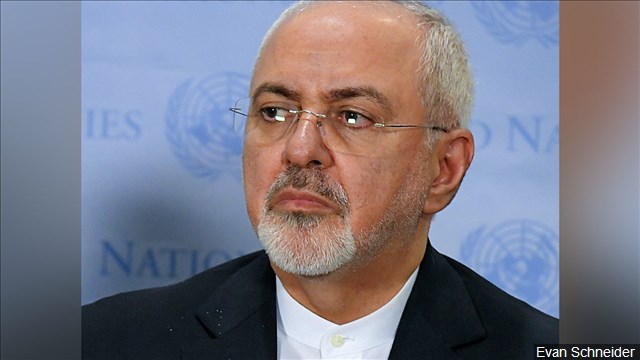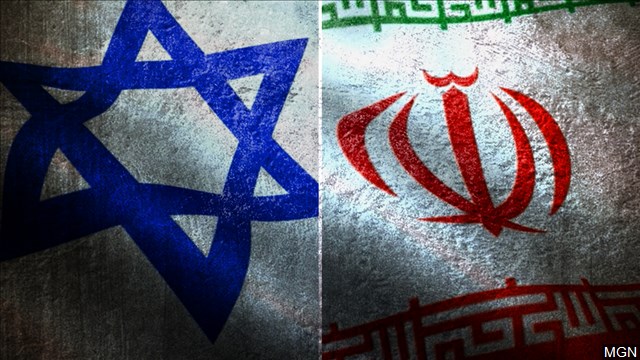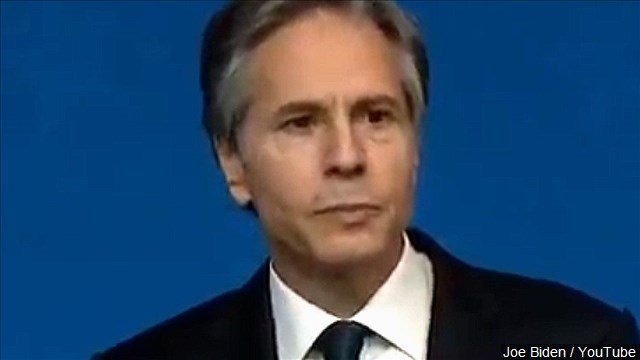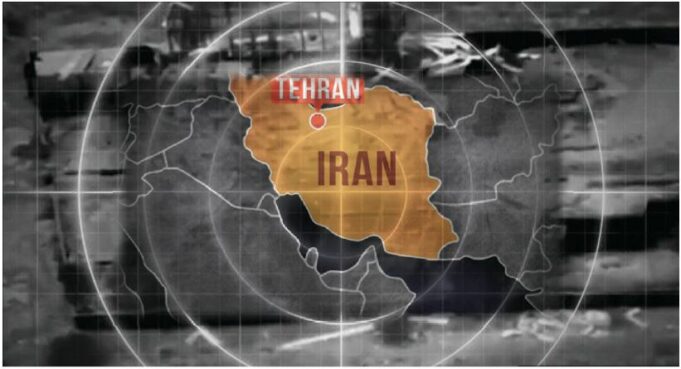Towards the end of 2020, former President Donald Trump was said to have been restrained by his advisors from bombing Iran in an attempt to destroy its growing nuclear program. His aides finally were able to dissuade him by explaining that doing so could ignite a conflict that could easily escalate out of control in the dying days of his presidency.

Then in early January, Iran’s foreign minister, Mohammad Javad Zarif said Iraqi intelligence warned that Israeli agents were planning to attack the U.S. military in Iraq to provide Mr. Trump with a pretext for launching an attack against Iran. Meanwhile, tensions were already high following the assassinations of Gen. Qassim Soleimani a little more than a year ago by the U.S. and of senior Iranian nuclear scientist Mohsen Fakhrizadeh allegedly by Israel.
Iran was at the top of the list for President Biden’s first National Security Council meeting on January 5, but foreign policy experts and others hope that with President Biden at the helm, the explosive and unstable relationship between both countries will be ratcheted down. There are, however, a number is thorny issues to be worked through, most prominent among them, Iran’s nuclear capabilities.
Despite comments to the contrary, a number of foreign policy observers and experts contend that there is no evidence that Iran is trying to build a military nuclear arsenal.
“I think the nuclear issue is a false flag,” Dr. Wilmer Leon, III told The Final Call. “I think the nuclear issue is being used and weaponized by Israel and (Secretary of State) Tony Blinken. He has lied, come out and said in the Jerusalem Post and Times of Israel that Iran compiled nuclear material in weeks. It’s not true. Nuclear material needs to be 90 percent (to be usable in a nuclear weapon) but right now it’s 3.5 percent and in some cases less. The nuclear material is needed for medical purposes, energy, not for nuclear weapons. Iran doesn’t have nuclear material processed to 90 percent, not close to it,” said Dr. Leon.

“My question is, where is the evidence? And don’t show me that crap that Netanyahu offered,” said Dr. Leon, a political scientist, author and talk show host. “Those drawings looked like they came from the ACME Bomb Company. His speech before Congress was proven to be wrong, full of lies. The head of Mossad was here yesterday. He came with b.s. before and probably did so again,” he added, referring to the Israeli prime minister.
Journalist and author Jon Jeter agreed. “The media just refuses to tell people that Iran doesn’t have nuclear weapons although Iran doesn’t mind that the U.S. thinks they do so that may keep them at bay,” he said. “Iran is a signatory to the nuclear non-proliferation treaty which means that they have to allow United Nations energy inspectors on demand.”
Mr. Jeter, a two-time Pulitzer Prize finalist, author of “Flat Broke in the Free Market” and co-author of “A Day Late and a Dollar Short,” castigated the U.S. for its double standard for giving Israel free rein with regards to possessing nuclear weapons but seeking to blunt any attempt by Iran to do the same.
“Israel has ‘em. Why can they have it and Iran can’t?” he asked. “Israel isn’t a signatory to the global nuclear agreement, and it gave nuclear technology to apartheid South Africa. Iran is not in the crosshairs because it has gold. It is the nemesis of the U.S. and Israel.”
In 2015, Iran and the U.S., the United Kingdom, Russia, France, China and Germany (P-5+1) hammered out a nuclear deal called the Joint Comprehensive Plan of Action (JCPOA) that would curtail Iran’s supposed efforts to develop a nuclear weapon. Iran, which has always insisted that its nuclear program was being used for peaceful purposes, agreed to the imposition of severe limitations on its nuclear activities and allowed inspectors from the International Atomic Energy Agency (IAEA), the global nuclear watchdog, to make surprise inspections in return for removal of crippling economic sanctions.
The Obama administration claimed that before July 2015, Iran had amassed a significant stockpile of enriched uranium and were operating almost 20,000 centrifuges, enough to create eight-to-10 bombs. U.S. experts estimated then that if Iran had decided to rush to make a bomb, it would take two to three months until it had enough 90 percent—enriched uranium to build a nuclear weapon—the so-called “break-out time.”
Sanctions previously imposed by the UN, U.S. and the European Union in an attempt to force Iran to halt uranium enrichment crippled its economy. Estimates are Iran incurred oil revenue losses totaling more than $160 billion between 2012 and 2016. When the deal went into effect, banks freed up about $140 billion of Iranian assets frozen overseas. Iran was also allowed to begin selling oil on international markets and resume trade.
But in May 2018, Mr. Trump scuttled the deal and began what he termed “maximum sanctions” that squeezed Iran and the countries that traded with it economically. The resulting sanctions and the economic blockade led to widespread hunger, internal strife, poverty and disease, said James Counts Early.
U.S. “blame game”
Dr. Leon said the U.S. walked away from the agreement but is trying to blame Iran and make it appear that it’s Iran’s responsibility to come back to the table.
“Iran is a very proud country and they’re saying we didn’t break it so why are you asking us to fix it?” he said. “A lot of people don’t realize that America did not want the agreement to work. There are some set provisions. Iran is free as it wants to to be a nuclear power in 25 years. The U.S. never wanted the agreement to reach its full conclusion. When Trump said it was a bad agreement, that we got suckered, he’s right. We never expected or wanted to allow Iran to pursue its nuclear interests. Trump came in and pulled the covers off this one. The U.S. was trying to take a hard line even though Iran was never pursuing nuclear weapons.”
Mr. Early said Iran won’t be bullied into re-entering a nuclear agreement. “Iran is a very self-determined, independent country that plays a qualitative role in the Middle East. They are not willing to compromise that position,” said Mr. Early, a longtime activist, former board member of the TransAfrica Forum, and board member of the U.S.-Cuba Cultural Exchange. “Iran is a major player in that region of the world, and they are protective of their sovereignty. The U.S.-Iran relationship is very volatile and could explode at any time, with the role of the rightwing Israeli government being a problem in this volatility.”
Mr. Early, an independent cultural democracy policy consultant who is fluent in Spanish, conversant in Portuguese, reads French and has some knowledge of Mandarin Chinese, said the U.S. seeks control of the region for oil and to ensure maintenance of the “apartheid governance system” that is the backbone of Israel’s “colonial occupation of Palestine.”
“Palestinians are oppressed and exploited. South Africans say that the situation Palestinians face is worse than anything they suffered. That illustrates the need for real change,” he said. “This is not about Jewry because they come with the same range of ideological choices as anyone else. People are earnest about seeking change because Palestinians are oppressed and exploited.”
Dr. Leon said Israel and Saudi Arabia are most concerned about Iran becoming a nuclear power, adding that Israel officials are pressing the Biden administration to bring both countries into any new JCPOA agreement. The Biden administration has pursued an Israeli-centric policy, he added.
“There is a very strong lobby in U.S. that is very well financed and puts a lot of pressure through lobbying groups,” he said. “These lobbies put a lot of money into (U.S.) political campaigns and money influences a lot of policies in this country.”
American historian and author Dr. Gerald Horne said there’s a great deal of uncertainty going forward but there is also hope.
“I would imagine that things are better today than 10 days ago,” he said. “The new administration is viewing climate change as a national security issue and there is a de-emphasis on fossil fuels, Gulf monarchies and lessening conflict with Iran. It has downsized the number of analysts in Middle East and increasing analysts covering Asia, as in China. There should be a laser-like focus on China.”
Dr. Horne—author of about three dozen books including “The Apocalypse of Settler Colonialism” and “The Counterrevolution of 1776: Slave Resistance and the Origins of the United States of America,”—said, he would like to think administration officials will go back to the nuclear accord.
“I would imagine that Iran would be looking for sanctions relief,” he said. “The previous administration backed out and increased sanctions but it’s not going to be easy to do because of Israel and the United Arabs Emirates who want to have a negative relationship and will do whatever they can to block Iran.”
Jockeying for regional influence
Much of American foreign policy in the Middle East is predicated by the powerful Israeli lobby and Saudi Arabia and other Gulf monarchies who buy massive amounts of weapons from United States, Dr. Horne continued.
“Saudi interests are invested heavily in U.S. entities such as News Corps, Apple and other companies. There are braided ties,” he said. “Is Iran vulnerable? I think it’s really Saudi Arabia and Israel who are more vulnerable. Iran has more than 80 million people, Israel has about nine million people and Saudi Arabia twice as much. Saudi Arabia and Israel should be nervous.”
Dr. Leon concurred, saying if conflict breaks out, the Gulf States and Israel would likely fare the worst.
“Thank God that cooler heads are prevailing,” he said. “What folks in this country don’t understand is that Iran has developed a ballistic missile system that would decimate Saudi Arabia, the UAE and Israel. It’s not that they’d win but that everybody would lose. You won’t get any oil out of Bahrain and Qatar when this is done. They’d be no tankers through the Straits of Hormuz.”
Iran’s future relationship with the U.S. must be viewed through the broader lens of American foreign policy, the Black Agenda Report (BAR)’s Danny Haiphong and other analysts said.

“Biden’s Secretary of State Tony Blinken provided a useful review of what to expect from the U.S. empire moving forward in his confirmation hearing with the Senate Foreign Relations Committee,” said Mr. Haiphong, BAR’s contributing editor. “Blinken co-signed U.S. support of disgraced coup leader Juan Guaido as the head of state in Venezuela and endorsed the continued enforcement of starvation sanctions on the Venezuelan people. He also affirmed the blatant lie that Iran is the largest state sponsor of terrorism in the world,” he said.
“Blinken agreed with Trump that China represented the ‘greatest foreign policy challenge of this century’ and promised to build a more effective but equally ‘tough’ strategy of containment. The first days of the Biden era saw a U.S. military envoy enter occupied Syria from Iraq. Israel, the U.S.’ closest military ally in the region, celebrated Blinken’s affirmation of U.S. loyalty to the settler state by launching an airstrike that killed a handful of Syrian men, women, and children.”
Mr. Jeter said however much America wants to pursue its imperialist, capitalist, hegemonic foreign policy agenda, it will be constrained by affairs at home.
“The United States is in deep decline and White people are in a moral panic to hold onto wealth and power,” he said. “We’re dealing with a pandemic, an economic meltdown and 40 years of Reaganomics. The American consumer has no buying power. They’re loaded down with loans and credit. So, all the government has is to print money or steal it. That’s what happened with Libya. Neera Tandem said the U.S. has a deficit and Libya has gold.”
“This is American imperialism 2.0, a cabal of neo-liberals who have made their lot with austerity at home and militarism abroad. I think the only thing that’s going to stop Biden ramping up on militarism is mass protests by the people of the U.S., but we’re looking at four more years of American imperialism at a critical time: in a post-industrial age, and in our twilight. …”













